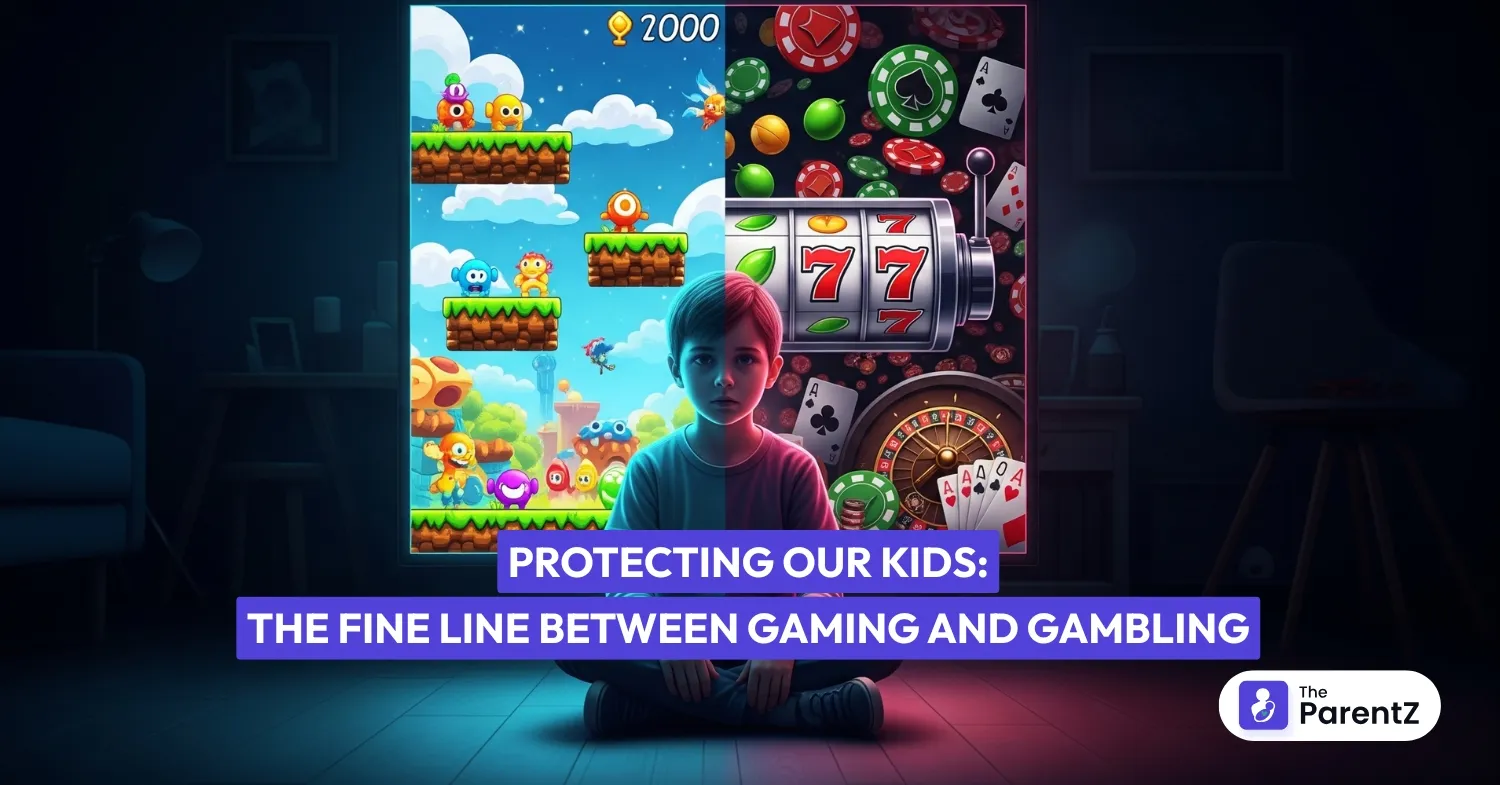For most parents, kids playing video games feels harmless. It’s part of their routine, their way of relaxing, even socializing with friends. But over the years, gaming has quietly changed. What was once just about finishing levels or defeating villains has slowly started to look more like gambling—tokens, loot boxes, mystery rewards, and bets hidden behind colorful screens.
And as parents, we often find ourselves wondering: When does this stop being a game and start becoming gambling?
This question is not just a thought anymore. It’s real. It’s happening in many homes, and it’s scary.
Why This Issue Is Growing
Recently, India's parliament passed the Promotion and Regulation of Online Gaming Bill. The law puts a blanket ban on real-money online games, after so many betting apps left families broken. It shows how big the problem has become.
But sometimes the danger doesn’t even look like gambling. Loot boxes in games, where kids spend money to unlock random items, are one example. They may not win actual cash, but the thrill, the chase, and the endless spending feel just like gambling. And our children don’t always see the difference.
The Fine Line Parents Must Watch
For kids, it often starts small. Maybe a ₹99 loot box for a “skin” that changes their character’s outfit. Or buying tokens to unlock a mystery item. It seems harmless until it repeats. And repeats. The line between gaming and gambling is crossed when:
- Money meets chance: If your child is spending money for an unknown outcome, like loot boxes or spins, it’s gambling behavior.
- Chasing losses: If they don’t like what they got and want to try again “just once more,” that’s gambling thinking.
- Emotional highs and lows: If wins make them excited but losses leave them restless or irritable, it’s the same emotional trap as gambling.
- Time and money slipping away: Hours of gameplay and unexpected expenses piling up are a warning sign.
The Real Struggles Parents Face
Parents are already carrying a lot. Work, school schedules, bills, safety, and now this hidden threat inside something that looks like innocent fun.
The hardest part is the helplessness. You might notice money missing from your account, or your child asking for money more often. Maybe they’ve grown distant, distracted, or hooked to screens all night. You try to stop them, they argue. You take away devices, they sulk or rebel. And inside, you wonder if you’re failing as a parent.
This is the silent burden many parents are carrying.
How to Step In Without Pushing Them Away
The key is not to shame or lecture. Kids often don’t even realize that what they’re doing is risky. To them, it’s just “part of the game.” Here are some ways to step in:
- Start Conversations, Not Fights: Pick calm moments, maybe after dinner or while driving. Ask open questions: “What do you like about this game?” or “What do you think about these loot boxes?”
- Draw Clear Boundaries: Set limits on spending. Turn off in-app purchases or require approval for every payment. Explain why, not as punishment, but as protection.
- Talk About Gambling Honestly: Share real stories. Kids need to understand that gambling is not just about casinos—it can creep into their games, too.
- Notice the Signs: If your child is constantly asking for money, neglecting schoolwork, or seems moody after playing, these could be red flags. Don’t ignore them.
- Seek Support if Needed: If things feel out of hand, reach out. Doctors, counselors, and gambling helplines exist for this reason. Asking for help doesn’t mean you’ve failed—it means you’re fighting for your child.
Reassuring Parents
You are not alone in this. Many families are struggling with the same blurred line. What’s important is staying aware and involved. Kids today live in a world very different from the one we grew up in. Gaming is part of their social life, their culture, their free time. Taking it away completely may not be realistic, but guiding them, setting limits, and being there when they stumble can make all the difference.
Conclusion
Gaming can be fun, creative, and even educational. But when chance, money, and addictive design come into play, it edges dangerously close to gambling. As parents, we need to walk that fine line with our children by protecting them without alienating them, guiding them without shaming them.
Yes, it’s tiring. Yes, it feels overwhelming at times. But our kids are watching us for strength, even when they roll their eyes or slam the door. They need us to hold the line they can’t always see.
Because at the end of the day, games will come and go. But the lessons, the trust, and the protection we give them will stay.





Be the first one to comment on this story.